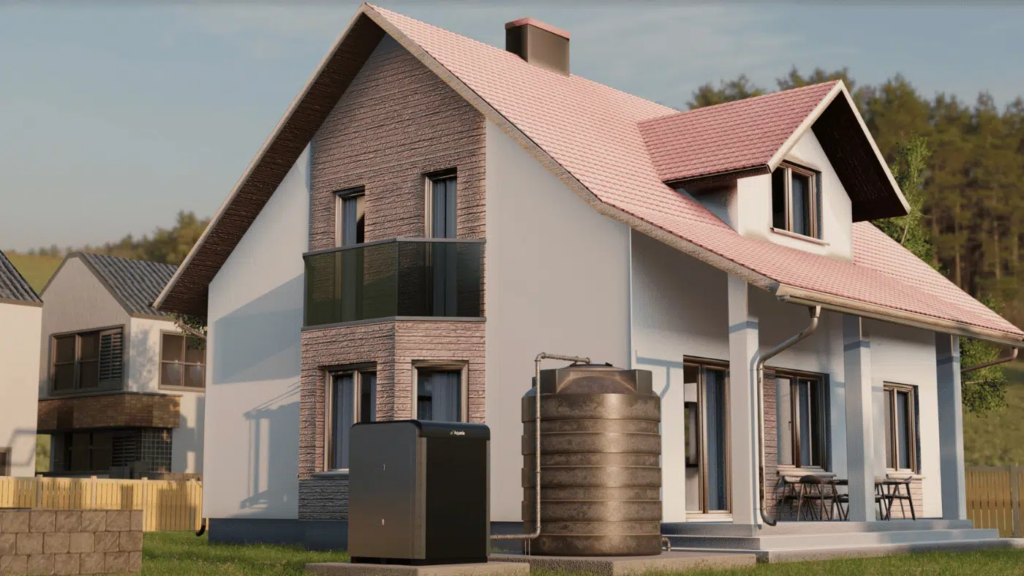
Introduction:
In India, where a significant portion of the population resides in off-grid homes, water storage solutions play a crucial role in ensuring a sustainable and reliable water supply. These homes often face unique challenges due to their geographical locations and lack of access to centralized water systems. As climate change intensifies and water scarcity becomes more prevalent, it’s essential to explore effective water storage methods tailored to the needs of off-grid living. Water storage is vital for off-grid homes for several reasons. Firstly, it provides a buffer against seasonal fluctuations in rainfall, which can lead to dry spells. Secondly, it allows families to store rainwater, reducing dependency on groundwater or distant water sources. Lastly, proper storage helps in maintaining water quality, preventing contamination and ensuring safe drinking water.
Types of Water Storage Solutions:
Rainwater Harvesting Systems Rainwater harvesting is one of the most effective methods for collecting and storing water in off-grid homes. By channeling rainwater from rooftops into storage tanks, families can significantly increase their water supply. The systems can be as simple as a barrel connected to a downspout or more complex with filtration and first-flush diverters to ensure clean water. In regions with heavy monsoons, a well-designed rainwater harvesting system can provide enough water for household needs throughout the year.
Storage Tanks Storage tanks are essential for managing water collected from various sources, including rainwater and borewells. They come in various materials, such as plastic, concrete, and metal. While plastic tanks are lightweight and resistant to corrosion, concrete tanks offer durability and thermal insulation. The size of the tank should be determined by the household’s water needs, the size of the catchment area, and the average rainfall in the region.
Groundwater Recharge Systems For many off-grid homes, groundwater is a vital resource. Implementing groundwater recharge systems can help replenish aquifers, ensuring a sustainable water supply. Techniques like percolation tanks, recharge wells, and contour trenches allow rainwater to infiltrate the ground, enhancing groundwater levels. This approach not only supports the household’s water needs but also contributes to the overall health of the local ecosystem.
Water Filtration and Purification Storing water is only one aspect of maintaining a reliable supply; ensuring its quality is equally important. Off-grid homes often require robust filtration and purification systems to make stored water safe for consumption. Gravity filters, UV purifiers, and bio-sand filters are popular choices that can effectively remove impurities and pathogens, making the water safe for drinking and cooking.
Solar-Powered Water Pumps For homes relying on borewells or other underground water sources, solar-powered water pumps can be a game-changer. These pumps are eco-friendly and cost-effective, drawing water from deep sources without the need for traditional electricity. By integrating these systems with storage tanks, families can easily manage their water supply while reducing their carbon footprint.
Integrating Solutions:
To maximize water security, off-grid homes should consider integrating multiple storage solutions. A combined approach, using rainwater harvesting along with groundwater recharge systems and reliable filtration, can create a resilient water supply chain. Furthermore, educating communities about water conservation practices can help reduce overall water demand, ensuring that available resources are utilized efficiently.
Conclusion:
As water scarcity continues to challenge many parts of India, innovative water storage solutions are essential for off-grid homes. By adopting methods like rainwater harvesting, utilizing storage tanks, and investing in purification systems, families can create a sustainable and reliable water supply. The integration of these solutions not only enhances the quality of life for off-grid residents but also promotes environmental sustainability, ensuring that future generations have access to this vital resource. In a country where water is both a precious resource and a pressing concern, empowering off-grid communities with the right tools and knowledge is a step towards a more sustainable future.


